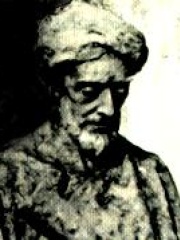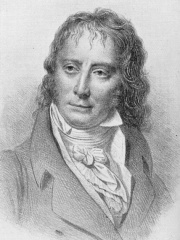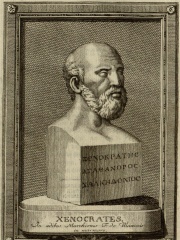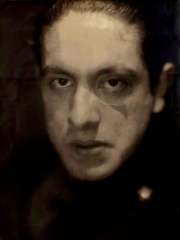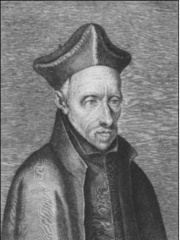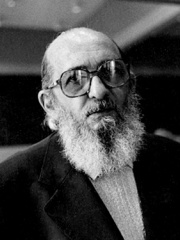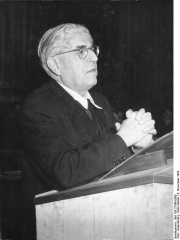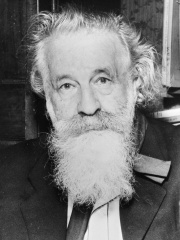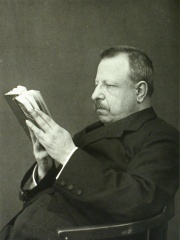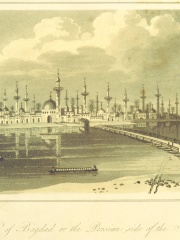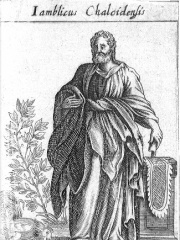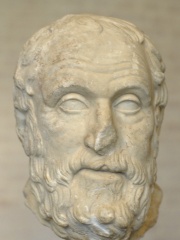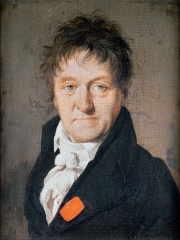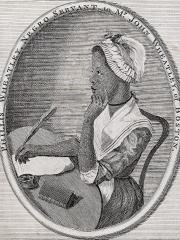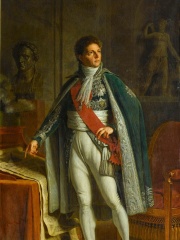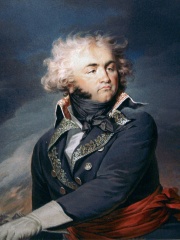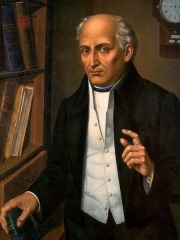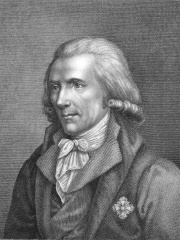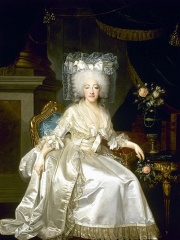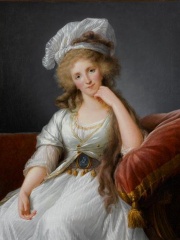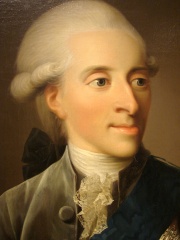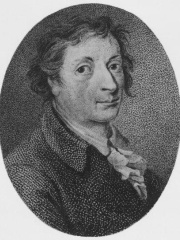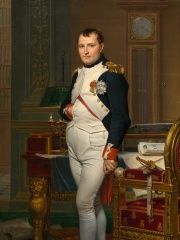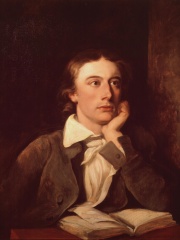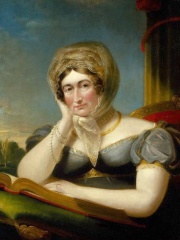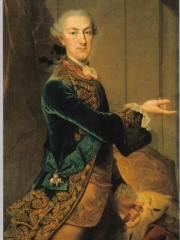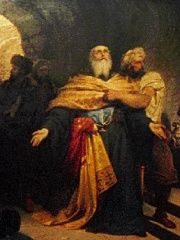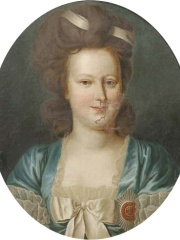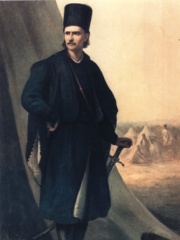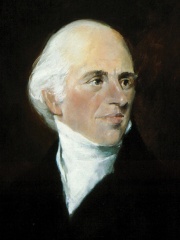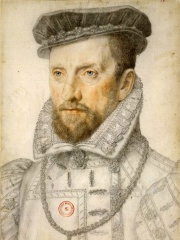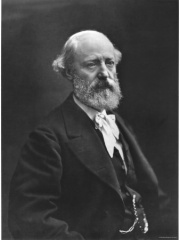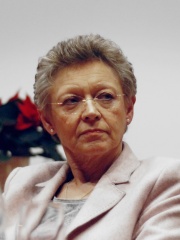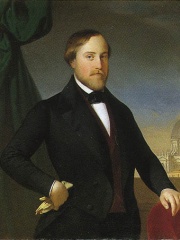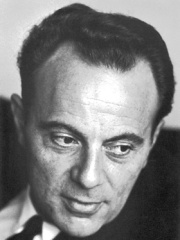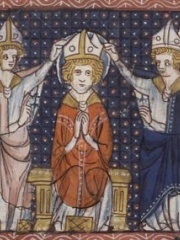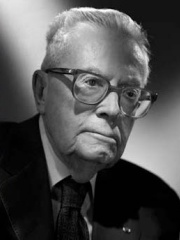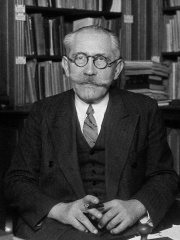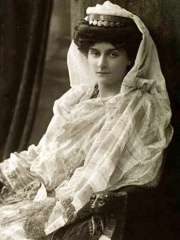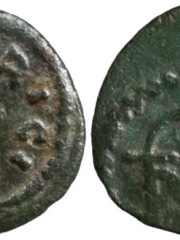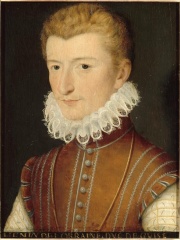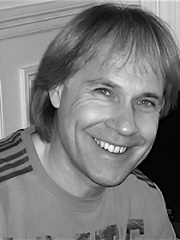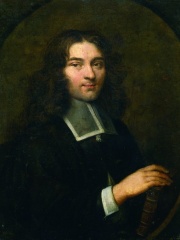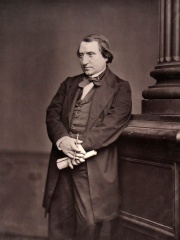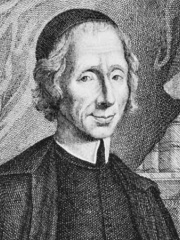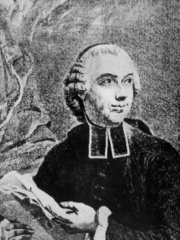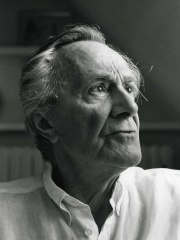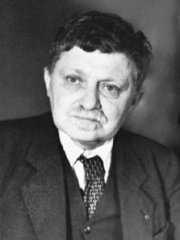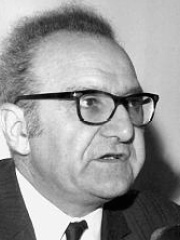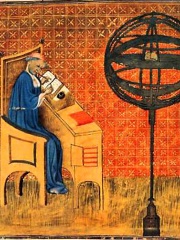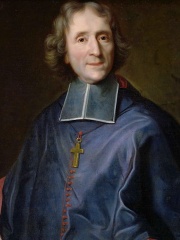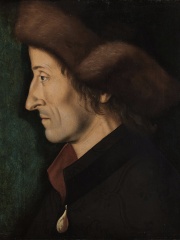PHILOSOPHER
Joseph de Maistre
1753 - 1821
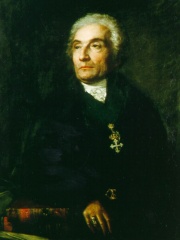
 Joseph de Maistre
Joseph de Maistre
Joseph Marie, comte de Maistre (1 April 1753 – 26 February 1821) was a Savoyard lawyer, diplomat, and political philosopher. He is chiefly remembered as one of the intellectual forefathers of modern conservatism, noted for his advocacy of social hierarchy and monarchy in the period immediately following the French Revolution. French by language and culture, Maistre was nonetheless a subject of the King of Piedmont–Sardinia, whom he served in various government positions, including stints in the Savoy Senate (1787–1792), as ambassador to the Russian Empire (1803–1817), and as minister of state to the court in Turin (1817–1821). A key figure of the Counter-Enlightenment and a precursor of Romanticism, Maistre regarded monarchy both as a divinely sanctioned institution and as the only stable form of government. Read more on Wikipedia
His biography is available in 46 different languages on Wikipedia (up from 43 in 2024). Joseph de Maistre is the 226th most popular philosopher (down from 211th in 2024), the 566th most popular biography from France (down from 513th in 2019) and the 29th most popular French Philosopher.
Joseph de Maistre is most famous for his essay "Considerations on France." In this essay, he argues that the French Revolution was the result of the philosophy of the Enlightenment.
Memorability Metrics
Page views of Joseph de Maistre by language
Among PHILOSOPHERS
Among philosophers, Joseph de Maistre ranks 226 out of 1,267. Before him are Solomon ibn Gabirol, Benjamin Constant, Xenocrates, Julius Evola, Francisco Suárez, and Paulo Freire. After him are Ernst Bloch, Gaston Bachelard, Benedetto Croce, Al-Ash'ari, Iamblichus, and Carneades.
Most Popular Philosophers in Wikipedia
Go to all RankingsSolomon ibn Gabirol
1021 - 1058
HPI: 73.35
Rank: 220
Benjamin Constant
1767 - 1830
HPI: 73.28
Rank: 221
Xenocrates
396 BC - 314 BC
HPI: 73.16
Rank: 222
Julius Evola
1898 - 1974
HPI: 73.16
Rank: 223
Francisco Suárez
1548 - 1617
HPI: 73.14
Rank: 224
Paulo Freire
1921 - 1997
HPI: 73.10
Rank: 225
Joseph de Maistre
1753 - 1821
HPI: 73.09
Rank: 226
Ernst Bloch
1885 - 1977
HPI: 73.08
Rank: 227
Gaston Bachelard
1884 - 1962
HPI: 72.94
Rank: 228
Benedetto Croce
1866 - 1952
HPI: 72.94
Rank: 229
Al-Ash'ari
873 - 936
HPI: 72.85
Rank: 230
Iamblichus
245 - 330
HPI: 72.85
Rank: 231
Carneades
214 BC - 129 BC
HPI: 72.79
Rank: 232
Contemporaries
Among people born in 1753, Joseph de Maistre ranks 4. Before him are Lazare Carnot, Phillis Wheatley, and Louis-Alexandre Berthier. After him are Jean-Baptiste Kléber, Miguel Hidalgo y Costilla, Benjamin Thompson, Marie Joséphine of Savoy, Louise Marie Adélaïde de Bourbon, Duchess of Orléans, Utamaro, Frederick, Hereditary Prince of Denmark, and Franz Karl Achard. Among people deceased in 1821, Joseph de Maistre ranks 3. Before him are Napoleon, and John Keats. After him are Louise Marie Adélaïde de Bourbon, Duchess of Orléans, Caroline of Brunswick, Franz Karl Achard, John William Polidori, William I, Elector of Hesse, Gregory V of Constantinople, Princess Caroline of Hesse-Darmstadt, Tudor Vladimirescu, and Johann Jacob Schweppe.
Others Born in 1753
Go to all RankingsLazare Carnot
POLITICIAN
1753 - 1823
HPI: 74.13
Rank: 1
Phillis Wheatley
WRITER
1753 - 1784
HPI: 73.58
Rank: 2
Louis-Alexandre Berthier
MILITARY PERSONNEL
1753 - 1815
HPI: 73.14
Rank: 3
Joseph de Maistre
PHILOSOPHER
1753 - 1821
HPI: 73.09
Rank: 4
Jean-Baptiste Kléber
MILITARY PERSONNEL
1753 - 1800
HPI: 71.95
Rank: 5
Miguel Hidalgo y Costilla
SOCIAL ACTIVIST
1753 - 1811
HPI: 70.78
Rank: 6
Benjamin Thompson
PHYSICIST
1753 - 1814
HPI: 69.72
Rank: 7
Marie Joséphine of Savoy
NOBLEMAN
1753 - 1810
HPI: 69.28
Rank: 8
Louise Marie Adélaïde de Bourbon, Duchess of Orléans
NOBLEMAN
1753 - 1821
HPI: 68.97
Rank: 9
Utamaro
PAINTER
1753 - 1806
HPI: 68.48
Rank: 10
Frederick, Hereditary Prince of Denmark
POLITICIAN
1753 - 1805
HPI: 68.03
Rank: 11
Franz Karl Achard
CHEMIST
1753 - 1821
HPI: 66.91
Rank: 12
Others Deceased in 1821
Go to all RankingsNapoleon
POLITICIAN
1769 - 1821
HPI: 95.29
Rank: 1
John Keats
WRITER
1795 - 1821
HPI: 74.72
Rank: 2
Joseph de Maistre
PHILOSOPHER
1753 - 1821
HPI: 73.09
Rank: 3
Louise Marie Adélaïde de Bourbon, Duchess of Orléans
NOBLEMAN
1753 - 1821
HPI: 68.97
Rank: 4
Caroline of Brunswick
POLITICIAN
1768 - 1821
HPI: 67.84
Rank: 5
Franz Karl Achard
CHEMIST
1753 - 1821
HPI: 66.91
Rank: 6
John William Polidori
WRITER
1795 - 1821
HPI: 66.72
Rank: 7
William I, Elector of Hesse
POLITICIAN
1743 - 1821
HPI: 65.78
Rank: 8
Gregory V of Constantinople
RELIGIOUS FIGURE
1745 - 1821
HPI: 65.64
Rank: 9
Princess Caroline of Hesse-Darmstadt
POLITICIAN
1746 - 1821
HPI: 64.00
Rank: 10
Tudor Vladimirescu
POLITICIAN
1780 - 1821
HPI: 63.67
Rank: 11
Johann Jacob Schweppe
INVENTOR
1740 - 1821
HPI: 62.72
Rank: 12
In France
Among people born in France, Joseph de Maistre ranks 566 out of 6,770. Before him are Gaspard II de Coligny (1519), Eugène Viollet-le-Duc (1814), Françoise Barré-Sinoussi (1947), Henri, Count of Chambord (1820), François Jacob (1920), and Hilary of Poitiers (315). After him are Maurice Allais (1911), Paul Langevin (1872), Princess Marie Bonaparte (1882), Theuderic I (485), Henry I, Duke of Guise (1550), and Richard Clayderman (1953).
Others born in France
Go to all RankingsGaspard II de Coligny
POLITICIAN
1519 - 1572
HPI: 73.11
Rank: 560
Eugène Viollet-le-Duc
ARCHITECT
1814 - 1879
HPI: 73.10
Rank: 561
Françoise Barré-Sinoussi
BIOLOGIST
1947 - Present
HPI: 73.09
Rank: 562
Henri, Count of Chambord
POLITICIAN
1820 - 1883
HPI: 73.09
Rank: 563
François Jacob
BIOLOGIST
1920 - 2013
HPI: 73.09
Rank: 564
Hilary of Poitiers
PHYSICIAN
315 - 367
HPI: 73.09
Rank: 565
Joseph de Maistre
PHILOSOPHER
1753 - 1821
HPI: 73.09
Rank: 566
Maurice Allais
ECONOMIST
1911 - 2010
HPI: 73.08
Rank: 567
Paul Langevin
PHYSICIST
1872 - 1946
HPI: 73.08
Rank: 568
Princess Marie Bonaparte
PSYCHOLOGIST
1882 - 1962
HPI: 73.08
Rank: 569
Theuderic I
POLITICIAN
485 - 534
HPI: 73.07
Rank: 570
Henry I, Duke of Guise
POLITICIAN
1550 - 1588
HPI: 73.07
Rank: 571
Richard Clayderman
MUSICIAN
1953 - Present
HPI: 73.07
Rank: 572
Among PHILOSOPHERS In France
Among philosophers born in France, Joseph de Maistre ranks 29. Before him are Pierre Bayle (1647), Ernest Renan (1823), Nicolas Malebranche (1638), Étienne Bonnot de Condillac (1714), Jean-François Lyotard (1924), and Pierre Teilhard de Chardin (1881). After him are Gaston Bachelard (1884), Gabriel Marcel (1889), Roger Garaudy (1913), Nicole Oresme (1323), François Fénelon (1651), and Sebastian Brant (1458).
Pierre Bayle
1647 - 1706
HPI: 74.62
Rank: 23
Ernest Renan
1823 - 1892
HPI: 74.49
Rank: 24
Nicolas Malebranche
1638 - 1715
HPI: 74.44
Rank: 25
Étienne Bonnot de Condillac
1714 - 1780
HPI: 74.16
Rank: 26
Jean-François Lyotard
1924 - 1998
HPI: 74.11
Rank: 27
Pierre Teilhard de Chardin
1881 - 1955
HPI: 73.85
Rank: 28
Joseph de Maistre
1753 - 1821
HPI: 73.09
Rank: 29
Gaston Bachelard
1884 - 1962
HPI: 72.94
Rank: 30
Gabriel Marcel
1889 - 1973
HPI: 72.52
Rank: 31
Roger Garaudy
1913 - 2012
HPI: 72.15
Rank: 32
Nicole Oresme
1323 - 1382
HPI: 71.70
Rank: 33
François Fénelon
1651 - 1715
HPI: 71.68
Rank: 34
Sebastian Brant
1458 - 1521
HPI: 71.58
Rank: 35
